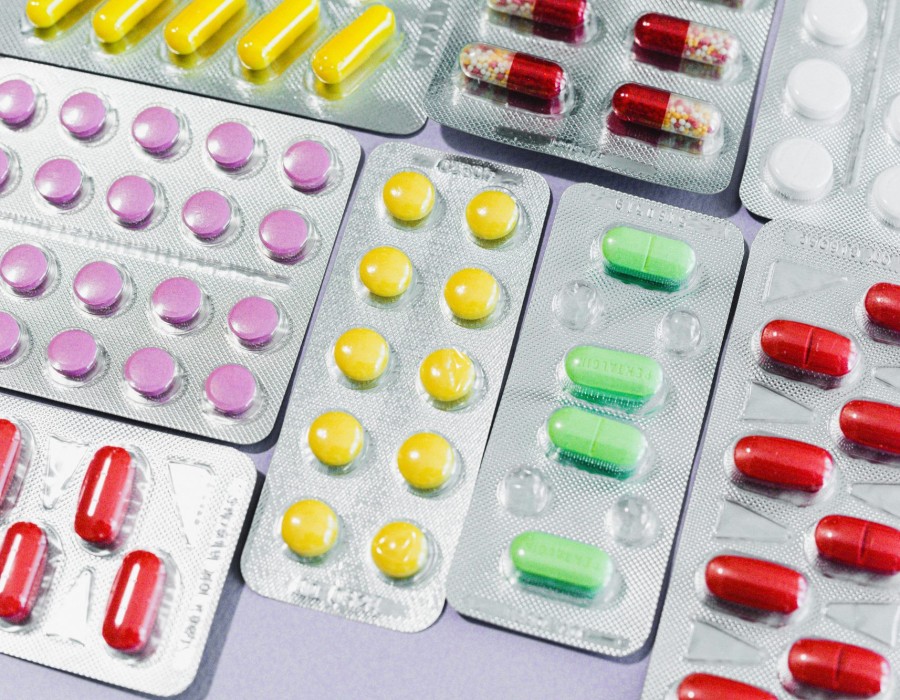Feeling out of sync emotionally or physically? You’re not alone. Hormonal imbalance affects millions—particularly during major life changes such as menopause, perimenopause, or andropause. And with mood swings, anxiety, and depression often tagging along, it’s no surprise many seek answers. One of the most commonly asked questions is: can HRT cause depression?
In this article, we’ll explore the most effective ways to maintain hormone balance without sinking into depressive lows. From the benefits and risks of hormone replacement therapy (HRT) to natural alternatives and lifestyle changes, we cover what works best for a depression-free hormone balance.
Understanding Hormonal Imbalance and Its Mental Impact
Hormones regulate nearly every system in your body—including your mood. Estrogen, progesterone, testosterone, and cortisol all play a role in emotional stability. When these hormones become imbalanced due to age, stress, or medical conditions, symptoms such as fatigue, irritability, brain fog, and depression often follow.
Why Does Hormone Imbalance Cause Depression?
- Estrogen influences serotonin, a brain chemical linked to happiness.
- Low testosterone in men is closely tied to mood disorders.
- Thyroid hormones impact energy levels and cognitive function.
- Cortisol spikes from chronic stress can lead to emotional burnout.
Many individuals turn to hormone replacement therapy to correct these imbalances. But can HRT cause depression? Let’s find out.
What Is Hormone Replacement Therapy (HRT)?
HRT is a treatment that supplements the body with hormones like estrogen, progesterone, or testosterone to restore balance. It’s commonly used for:
- Menopause symptoms in women
- Low testosterone in men (Low T)
- Certain thyroid disorders
While HRT can offer significant relief, it’s not without controversy—especially concerning mental health.
Can HRT Cause Depression? The Science Explained
This is a key concern: Can HRT cause depression? The answer isn’t straightforward. In many cases, HRT improves mood by correcting hormonal deficiencies. However, for some, it may worsen depressive symptoms, especially during the adjustment period or if not properly dosed.
Possible Reasons HRT Might Trigger Depression:
- Incorrect Hormone Dosage
- Too much estrogen or testosterone can create mood swings or anxiety.
- Type of Hormone Used
- Synthetic hormones may interact differently in the brain compared to bioidentical ones.
- Individual Response
- Genetics, medical history, and other medications can influence how HRT affects mood.
- Timing of Treatment
- Studies show that initiating HRT too late after menopause may pose emotional side effects.
So, can HRT cause depression? Yes, in some individuals—but it’s more about the how, what, and when than a simple yes or no.
Best Practices to Avoid Depression While on HRT
To reduce the risk of depression while undergoing hormone therapy, follow these evidence-based strategies:
1. Choose Bioidentical Hormones
Bioidentical hormones are structurally identical to those naturally produced in the body and are often better tolerated. They’re available via compounding pharmacies and prescribed by specialists.
2. Work with an Endocrinologist or Hormone Specialist
A personalized hormone plan based on blood work and symptoms ensures better results. Avoid one-size-fits-all treatments.
3. Monitor Mental Health Closely
If you begin HRT and notice mood changes, communicate with your doctor immediately. Adjustments in dosage or type of hormone may resolve the issue.
4. Integrate Mental Health Support
Therapy, mindfulness practices, and regular counseling can significantly reduce any emotional turbulence during HRT.
Natural Ways to Balance Hormones Without Depression
Not everyone wants or needs HRT. If you’re wary and asking yourself, “Can HRT cause depression?” and prefer alternative paths, here are proven natural options.
1. Adaptogenic Herbs
Herbs like ashwagandha, maca root, and rhodiola help your body adapt to stress and stabilize hormones.
2. Diet and Nutrition
- Eat healthy fats (avocados, flaxseeds, omega-3s)
- Balance blood sugar with low-glycemic meals
- Eliminate processed sugars and alcohol
3. Exercise
Physical activity improves insulin sensitivity, boosts testosterone, and releases endorphins—your natural mood boosters.
4. Sleep Hygiene
A minimum of 7–8 hours of sleep per night is essential for hormonal regeneration and emotional resilience.
Success Stories: Real People, Balanced Hormones
Many individuals report life-changing results from HRT when administered correctly. Others thrive with natural alternatives. For example:
- Karen, 52, struggled with menopausal mood swings. With tailored bioidentical HRT, her symptoms stabilized in 3 months.
- David, 47, avoided HRT and opted for testosterone-boosting workouts and ashwagandha. His energy and mood rebounded naturally.
Their takeaway? Understanding your unique hormonal makeup is the first step toward a depression-free life.
Post-Treatment Care: Maintaining Your Mental Edge
Whether you're using HRT or natural methods, post-treatment care is critical to maintaining hormone balance and preventing relapse into mood issues.
Routine Testing
Get your hormone levels checked every 6–12 months to catch fluctuations early.
Holistic Approach
Include regular therapy sessions, stress management, and anti-inflammatory diets.
Stay Informed
Always ask: “Can HRT cause depression for me specifically?” Education and medical supervision can make all the difference.
Conclusion: The Balanced Path to Emotional and Hormonal Health
Hormones play a pivotal role in your emotional well-being. Whether you opt for hormone replacement therapy or natural methods, understanding how each approach affects your mental state is essential.
Can HRT cause depression? Yes—but only in certain situations and often when mismanaged. With personalized care, the right hormone balance can be the key to a depression-free, energized, and joyful life.





Comments